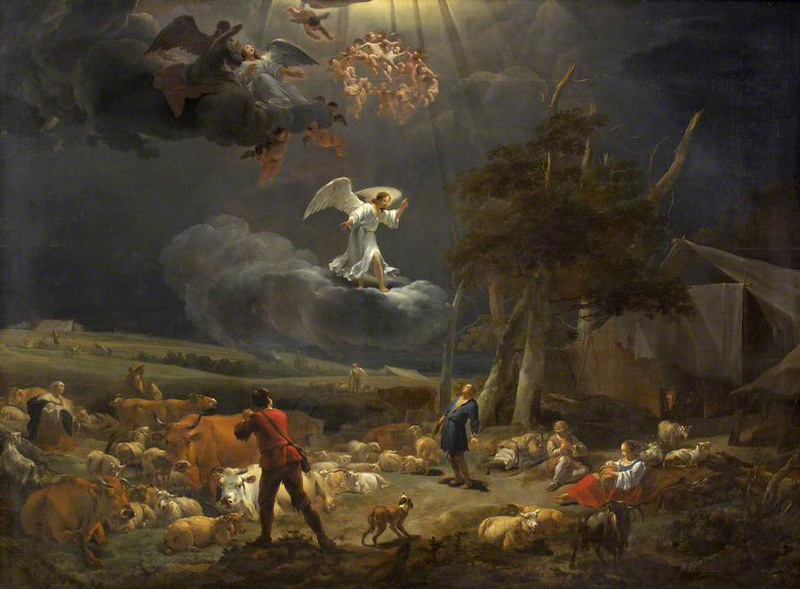
A regular musical feature sung at the Lord’s Supper is the Gloria. The Gloria is one of the most ancient of Christian hymns. The most recent version of the guidelines governing the celebration of Mass calls for a wider use of this venerable chant.
The inspiration for its text comes from Luke 2 as the host of heaven sings when an angel informed the humble shepherds of Bethlehem that the Savior had been born. After urging the shepherds to look for the child they would find wrapped in swaddling clothes, laying in a manger, the Angel and the throngs of heaven sing out, “Glory to God in the highest, and on earth peace to people of good will.”
“Glory” takes on a technical meaning in the Scriptures to indicate the visible manifestation of God’s presence in the world. Although omnipresent, from Mount Sinai, to the Temple in Jerusalem, and to the manger, God has chosen to manifest Himself locally at certain places and times in salvation history.
That an Angel, a divine messenger, would announce God’s glorious manifestation to the shepherds is consistent with the angelic presence seen throughout the Bible. This is why the Gloria is often called “angelic hymn.”
Indeed it was a glorious manifestation of God’s localized presence when He came among us. Humble from the start, a great novelty entered creation at that time and place because reconciliation between heaven and earth was again available. The world has never been the same.
This notion influenced the early development of the Gloria’s subsequent verses. No words of praise adequately exhaust God’s generosity, but the novelty of the God-man among us was so inspiring to early Christians that they formed their own hymn to remind believers of God’s glory in Christ.
It is believed that the Angelic Hymn was first composed in the Christian East and then brought into the Latin West by Saint Hilary of Poitiers. By 359 the Gloria was prescribed for most Masses, although as early as 136 Pope Telesphorus inserted a Byzatine- Greek version into the nighttime Christmas Mass.
Alternating verses based on the Liturgical occasion were used in the Gloria until the Council of Trent in 1545. Since then the text as we know it has been fixed.
Today the Gloria is prescribed for all Sundays outside of Advent and Lent as well as for festive celebrations like the Dedication of a new Church and Professions of Religious Life. It is also to be sung at celebrations when Sacraments like Baptism, Confirmation, Marriage, and Holy Orders are conferred.
Each of these occasions reveals why Gloria still speaks to God’s people. When His glory touches human souls and earthly places, things are never the same. Spaces are filled with His presence and lives changed.
In a time when the “courage” of self-determined trans-formation is celebrated, the Liturgy’s angelic hymn reminds us that the novelty of God’s glory elevates creation above it all. If we receive it joyfully like the shepherds of Bethlehem, then blessed are we who are called to the Supper of the Lamb.

